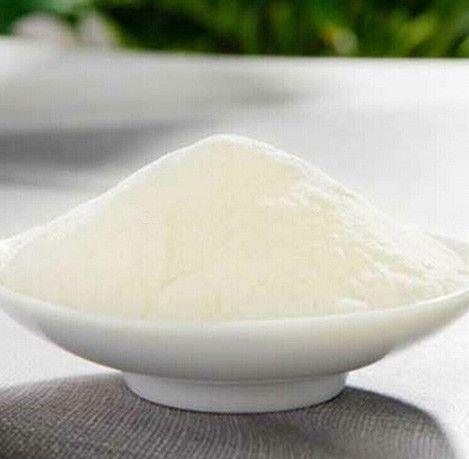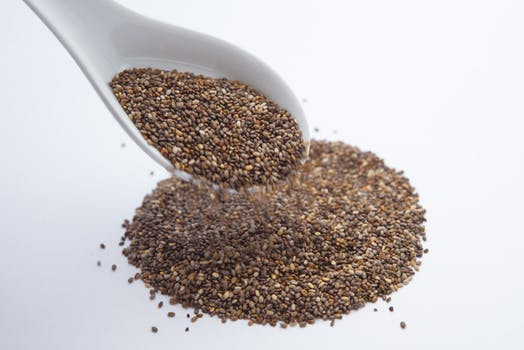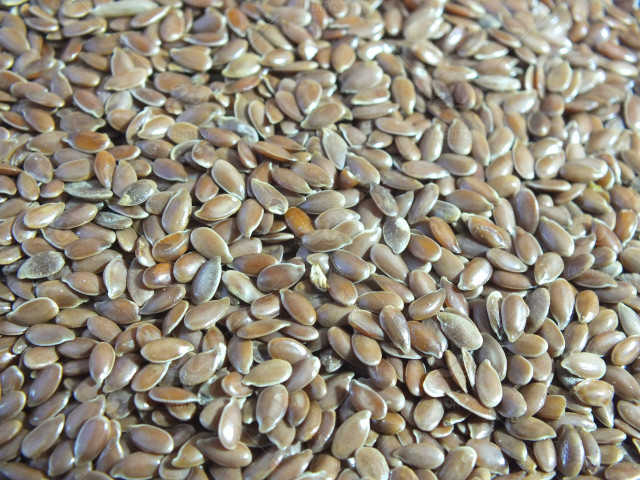Cornstarch is a thickening agent used in soups, stews, and other foods. But are the carbs in cornstarch too high to be considered keto-friendly?
If you look at the nutrition facts of cornstarch, you’ll see that one ounce contains over 25 grams of total carbohydrates, which could easily use your entire carb allotment for the day.
Luckily, there are plenty of thickening agents (with far fewer carbs) that you can use instead of cornstarch.
Below, you’ll learn more about cornstarch nutrition, the carbs in cornstarch, and what you can use in its place.
What Is Cornstarch?
Cornstarch is a smooth, white powder used for a variety of things ranging from cooking and baking to reducing friction and chaffing (like baby powder). It’s a thickening agent used in liquid-based foods such as soups, sauces, custards, and gravy. Some food brands also use cornstarch to thicken cheese and yogurt.
Cornstarch is made from the starchy part of a corn kernel. This part is referred to as the endosperm. The first discovery of cornstarch was made in 1840 by Thomas Kingsford, the superintendent of a wheat starch factory located in New Jersey. However, it wasn’t until 1851 that cornstarch was used for consumption. For those first 11 years, it was used for industrial purposes only.
When it comes to choosing regular flour or cornstarch, some people prefer cornstarch — its lack of pigment makes it translucent for a variety of baking and cooking purposes.
Is Cornstarch Keto-Friendly?
Most cornstarch calories come from carbs, and there’s a rather insignificant amount of fats and protein in cornstarch. When it comes to macronutrients, a one-ounce serving size of cornstarch is about 106 calories, including 25.6 grams of carbs, 25.3 grams of net carbs, less than 1 gram of fiber, and less than 1 gram of protein.
At 25 grams of carbs per serving, the carbs in cornstarch render it inedible on the keto diet.
While cornstarch doesn’t provide many vitamins or minerals, it can help those who need extra calories (i.e., if they struggle to reach the 2,000-calories-per-day recommendation).
However, when it comes to health benefits, the advantages end there. Cornstarch offers no vitamin A, vitamin C, vitamin D, vitamin B12, vitamin B6, or any amino acids[*].
6 Low-Carb Keto-Friendly Cornstarch Substitutes
Since the carbs in cornstarch are too high for a keto-friendly diet, you may want to look for some low-carb alternatives. Cornstarch substitutes include:
1. Glucomannan Powder

Glucomannan is a type of dietary fiber taken from the root of the konjac plant. It’s a tasteless substance that can be added to almost anything without a noticeable difference.
Due to its high-fiber content and low-calorie count, it’s no surprise that glucomannan powder is beneficial for weight loss and managing appetite. It’s a natural prebiotic, which is linked to better cholesterol, improved digestion, improved hormone levels, stronger gut health, a decrease in inflammation, and other immune system functions[*][*][*].
Consuming konjac fiber can also provide relief from any existing digestive or constipation issues. It may lower cholesterol and help manage diabetes[*]. A one-cup serving of glucomannan powder is only 10 calories, including zero grams of fat, zero grams of protein, zero grams of carbs, and 5 grams of fiber.
2. Almond Flour

Almond flour or almond meal can give you the same texture and consistency as cornstarch, without the high carb count or any adverse health effects.
Almond flour contains beneficial vitamins and minerals, including vitamin E, iron, manganese, magnesium, potassium, and calcium. A quarter-cup serving contains 160 calories made up of 6 grams of carbs, 3 grams of net carbs, 3 grams of fiber, 14 grams of total fat, and 6 grams of protein[*].
Almond flour has been shown to improve the health and function of the heart, decrease the risk of cancer cell formation, help people struggling with diabetes or obesity, and improve energy throughout the day[*].
3. Chia Seeds

Chia seeds are low-carb friendly, and packed with health benefits. If you’re following a low-carb or keto diet, simply add one teaspoon of chia seeds to your recipe for a thicker consistency.
When added to water (or any liquid for that matter), chia seeds expand into a thick gel, making it ideal for homemade jelly, pudding, and sauces.
One ounce of chia seeds contains about 137 calories, including 9 grams of fat (a mixture of polyunsaturated fat and monounsaturated fat), 4 grams of protein, 12 grams of carbs, 2 grams net carbs, and almost 11 grams of fiber. Chia seeds also provide key compounds, including manganese, phosphorus, calcium, zinc, copper, and potassium[*].
4. Flaxseeds

Ground flaxseed, or flaxseed meal, works as a glue, binding certain ingredients together in many keto-friendly recipes.
Flaxseed provides an abundant amount of omega-3 fatty acids. These tiny seeds are also the number one source of lignans, a group of polyphenols found in plants.
Flaxseed helps decrease cholesterol levels, provides an abundant amount of antioxidants, and can help with weight loss[*][*]. One serving, or about two tablespoons, contains a total of 110 calories, including 8 grams of fat, 6 grams of carbs, 6 grams of fiber, zero grams of net carbs, and 4 grams of protein[*].
5. Cauliflower
Believe it or not, cauliflower can be used as a thickening agent in soups, stews, and even alfredo sauce.
To use this method, boil a head of cauliflower florets in 2-4 cups of broth. Once the cauliflower florets are tender, transfer to a food processor, and blend until smooth.
The result is a thick, creamy sauce, similar to the base used in various chowders.
6. Xanthan Gum
Xanthan gum is a thickening agent commonly used in gluten-free baking.
It allows bread, muffins, and other baked goods to thicken and rise without the use of yeast or other thickeners.
You will use only a small amount of xanthan gum, or roughly half a teaspoon, which contains just a single gram of carbs[*].
Cornstarch Substitutes You Should Avoid
When following a keto diet, it’s best to avoid the carbs in cornstarch or any thickening agents.
Some cornstarch substitutes you should avoid when on keto diet are-
- Arrowroot flour
- Tapioca starch
- Wheat flour
- White flour
- Rice flour, and
- Potato starch
The carb count in these substitutes is too high to fit within a low-carb diet.
Conclusion
There are plenty of low-carb substitutes for cornstarch and flour that will not only keep you in ketosis, but will provide you with a number of important health benefits as well.
For fun, creative, and easy ideas on how to add these low-carb thickening agents to your keto meal plan, be sure to browse the soups and stews recipes.
